After 40 years, the Army's longest continuously serving active-duty general to have seen action in Vietnam, recently began the next chapter of his life.
Gen. Charles C. Campbell, the 17th commander of U.S. Army Forces Command, retired June 3, at Fort McPherson, Ga.
He was dubbed "Hondo" early in his career-a moniker that, as Army folklore has it, is based on the title character of the classic Louis L'Amour western novel (a role John Wayne played in the silver screen version). Whatever the source of the nickname, Campbell wore it as a badge of honor as he witnessed decades of change in the Army.
Campbell's Army story began with Special Forces training, followed by assignment to the Forces Armee' National Khmere Training Command, Army Advisory Group, Phouc Tuy Training Battalion, Vietnam, where he taught tactics. While in Vietnam, he also served as an A-Detachment executive officer and commander, his official biography states.
When he returned from Vietnam, he came home to a nation divided by the war, Campbell said.
"I encountered a nation that was very much conflicted-a nation and a people that were very much conflicted by their view of the war, and by their view of the Soldiers who fought that war," he explained. "I could tell you that we learned a lesson.
"As a nation, as a people, we've learned that we can separate the policy from the Soldier who's tasked to implement the policy. So, in this era, our Soldiers and their Families have enjoyed universal support from a respectful and grateful nation," he said.
The American opinion of Soldiers isn't that only thing that's changed since Vietnam: the Army itself has changed. When Campbell entered service in 1970, the Army was a conscripted force, with about 500,000 Soldiers deployed in the war. Three major changes occurred since then, Campbell explained.
In July 1973, the Army became an all-volunteer force and reinvented itself, embracing "a doctrine of maneuver," Campbell said. In 1989, with the fall of the Berlin Wall, the force had to reinvent itself again to become expeditionary. Finally, on Sept. 11, 2001, the Army had to become campaign capable-"capable of prosecuting protracted campaigns," he said.
Campbell feels the Army rose to every occasion and successfully reinvented itself when needed. After 9/11, three major paradigm shifts occurred as well: the force structure was changed from a division-centric Army to a brigade-centric Army, the Army Force Generation model was adopted and the Guard and Reserve were increasingly operationalized, Campbell explained.
The ARFORGEN process progressively readies and then cyclically deploys units, he said, and is managed by the mobilization agent for the Army: FORSCOM.
Campbell considers ARFORGEN sustainable, and said it will remain the Army's strategic process for force generation through the drawdown in Iraq and in the future.
"The resiliency of this force is pretty remarkable and I think when history is written, one of the stories that will be told will relate to the remarkable adaptability and resiliency of a force that, quite frankly, reinvented itself over the course of the prosecution of two protracted conflicts," he said.
While serving with FORSCOM, Campbell led the organization through many changes. The command has become a global force provider for the Army, has transformed from a management headquarters into an operating headquarters, and has successfully managed the ARFORGEN cycle, consistently mobilizing about 750,000 Soldiers a year across the components.
Though the Army and FORSCOM changed around Campbell and shaped his career, he has always remained grateful to his fellow Soldiers and for the opportunity to serve.
According to Campbell's biography, he earned his commission through ROTC at Louisiana State University, and served as an instructor at the Infantry Training Command (Provisional), at the United States Army Infantry Training Center, Fort Ord, Calif.
After Vietnam, Campbell held many leadership positions, including commanding general, Eighth U.S Army, Republic of Korea. Campbell holds a bachelor's degree in history from Louisiana State University and a master's degree in military art and science from the U.S. Army Command and General Staff College. Campbell has also attended scores of military schools, culminating with his 1991 graduation from the Army War College.
"You would expect that 40 years in the Army has shaped me in a variety of ways, but it's certainly been a full, rich and abundant experience," Campbell said. "I'm humbled every day by virtue of the selfless sacrifice these young Soldiers make in rendering service to this nation, and the sacrifices their Families make to allow those Soldiers to serve our nation," he continued.
Now that he has retired, Campbell has moved back home to Shreveport, La., with his wife Dianne. He thinks any free time may feel a bit "alien," but is looking forward to it.
"It's just simply been my great, great privilege and honor to have served our nation and our Army. Dianne and I now are excited about the next chapter in our life," Campbell said.
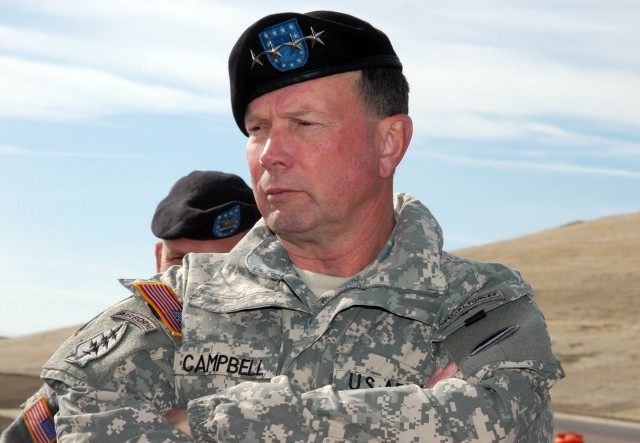
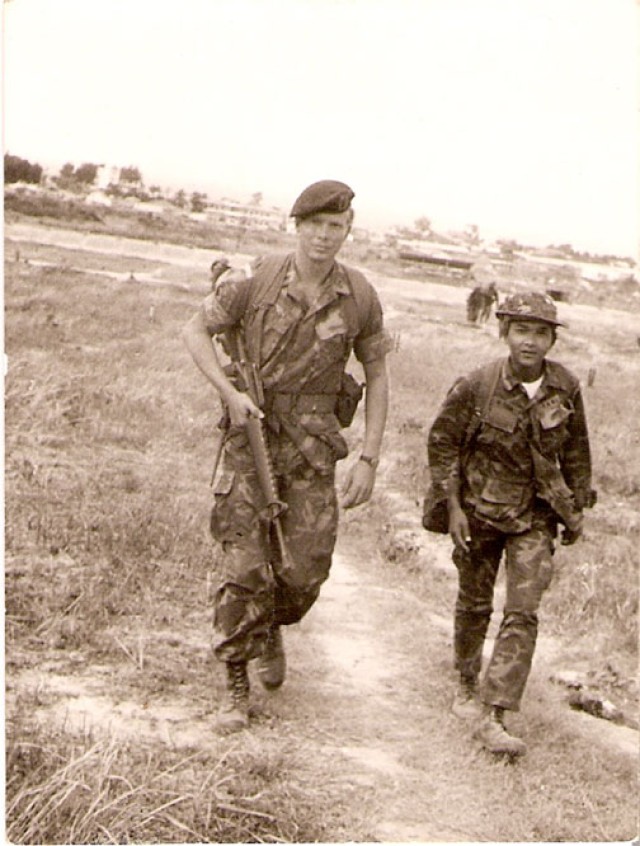
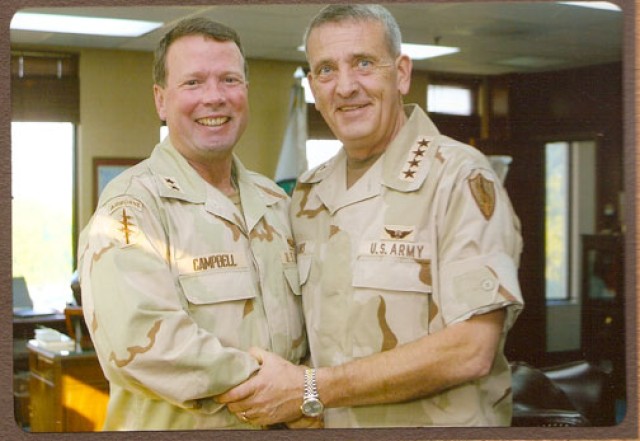
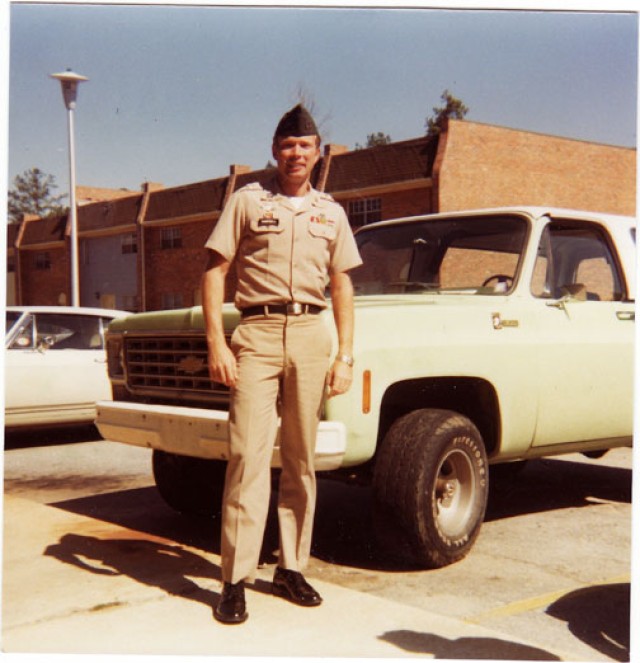
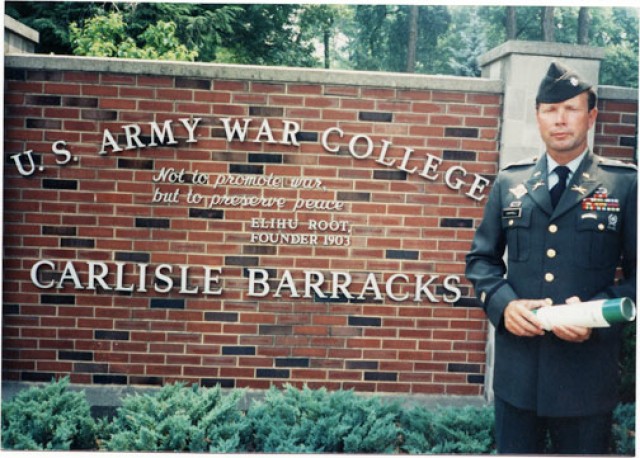

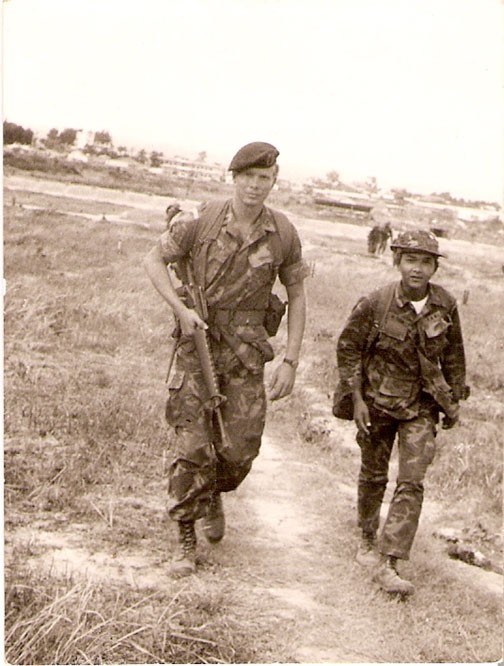
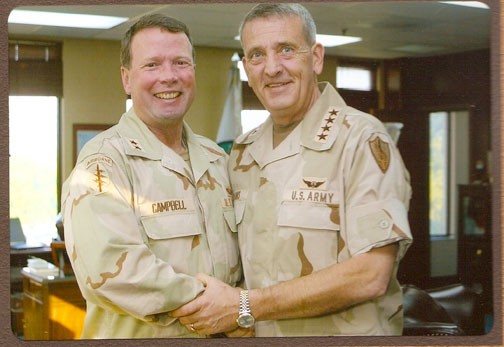

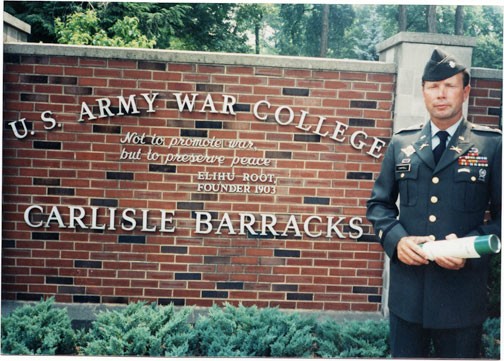
Social Sharing